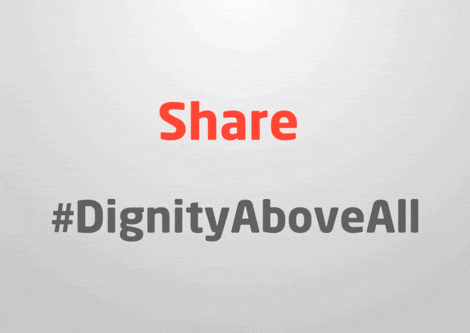World AIDS Day 2016 overview
World AIDS Day is celebrated around the world on 1 December each year. It has become one of the most recognized international health days and a key opportunity to raise awareness, commemorate those who have passed on, and celebrate victories, such as increased access to treatment and prevention services.
The theme of this year’s campaign in the Eastern Mediterranean Region is “Dignity above all”.
The Constitution of the World Health Organization enshrines the right of every human being to have the highest attainable standard of health as a fundamental entitlement. Protection and promotion of HIV/AIDS-related human rights are the responsibility and obligation of every country, as defined in international treaties. According to the United Nations Human Rights Council, discrimination against people living with HIV or those thought to be infected is a clear violation of human rights. Stigma and discrimination pose a significant threat to fundamental human rights. Regrettably, people living with HIV encounter many forms of stigma and discrimination while seeking care in health facilities – the very places that should be their first line of support. These behaviours constitute a violation of basic human rights and of professional ethics.
They have further negative impacts in that they create a barrier to fighting the HIV epidemic and contribute to keeping people living with HIV from adopting preventive behaviours and from accessing much-needed care and treatment.
Animated GIF for social media use









